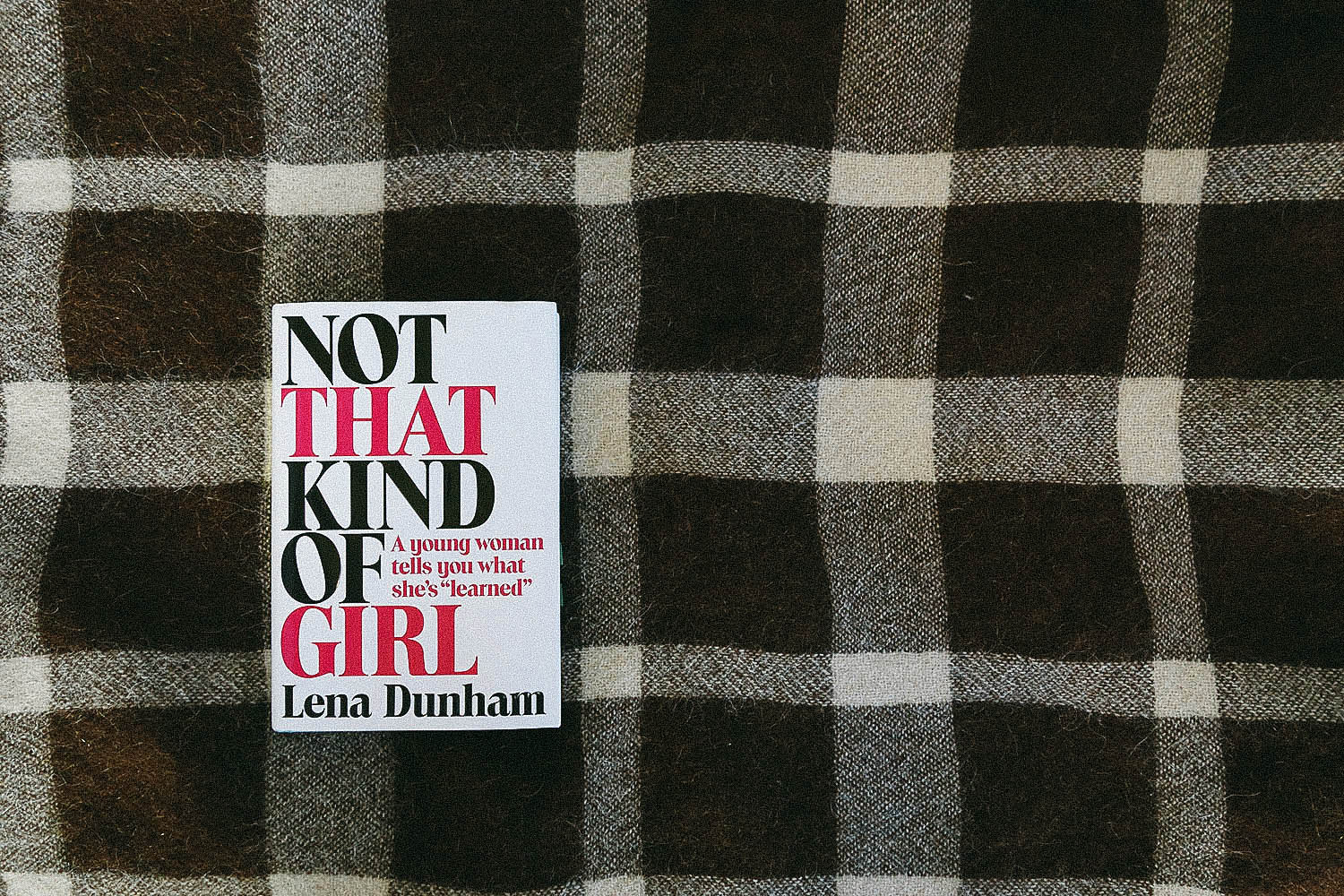
One of the most common criticisms that Dunham’s work receives is that it is far too self-absorbed. Her creative life is centered on her personal life, and what exactly that contributes to our cultural canon is practically a topic of obsession. Perhaps there is resistance to her work because its impact is counterintuitive; often, universal experiences are expressed and felt most strongly within the details of a single individual’s life. This is proven time and time again in how we respond to books, music, the news, and more. Not That Kind of Girl embraces a willingness to share that feels far from self-absorbed; it comes off bold and even a little brave. Difficult or awkward moments are tempered by a strong sense of humor, often self-deprecating, which along with sarcasm happens to be my favorite brand of humor.
Not That Kind of Girl is divided into five sections, and the final one, “The Big Picture,” holds two of my favorite essays. Dunham explores her struggle with OCD in “Therapy & Me,” and reveals a morbid obsession with death that she shares with her father in “Is This Even Real? Thoughts on Death and Dying.” But my absolute favorite essay is “Little Leather Gloves: The Joy of Wasting Time,” from the section simply entitled, “Work.” As a recent college graduate living at home, Dunham spends nine months working at Peach and the Babke, a high-end baby boutique that sells items retailing at “price upon request.” She works there with two best friends, and the quirks of the boutique, along with the luxury of their idle time, are both revealing and hilarious.
However, the beauty of “Little Leather Gloves” is that the idleness ends. The baby boutique eventually loses its allure, and Dunham and her friends begin work on Delusional Downtown Divas, a web show that is the precursor to HBO’s “Girls.” To be aimless has its siren song. There is something romantic to being young, lost, and confused, but “figuring it out” has an expiration date. The desire to work, to create, to simply do something, rears it head, or at least it does for some people. Dunham calls it a “sneaking ambition” and sets to work, and indeed, Not That Kind of Girl reads like the hard work of a talented writer.


Love what you wrote here. This makes me want to read her book. There’s been so much backlash recently about Lena “self-reportedly” molesting her little sister that it put me off the idea of even approaching the book. But your perspective on it has led me back to putting it on my to-read list again, which has far more books than the time I have available to read them. I will get to them eventually! Thanks for sharing your thoughts. 🙂
I like Lena Dunham’s show Girls, but I wasn’t sure how good her biography would be. Good review. Makes me want to read it. 🙂
I purchased this book recently but haven’t gotten around to reading it. Thanks for giving me the motivation I needed
xxLK
http://www.ellekae.com
I have it on my ever-increasing list of books to read. If it’s a book about women who go out and make their dreams come true, I’m all about it.
I’ve read so much about this book. I guess I have to read it as well 🙂
Thanks for the review!
I have a copy but have not yet gotten to opening it! A friend has said that the book lacks the shock value Lena Dunham usually brings in on ‘Girls.’ What do you think?
I have the ebook and meant to read this and your review has just further cemented that in for me, I need to read this book. Your reviews are on point!